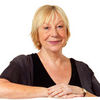New property investors paying too much in Sydney, Melbourne and Brisbane
By Pam Walkley
It's a case of "buyer beware" for new property investors thinking of getting into the Sydney, Melbourne or Brisbane residential markets.
With Sydney prices overvalued by 25%, according to one leading expert, and further rises expected in Sydney, Melbourne and Brisbane this year, new investors in these markets could be in danger of paying over the odds.
They are likely to also get low rental returns, making them dependent on ever-rising values to earn decent long-term returns on their assets.
Capital city house and apartment values have been rising at more than three times the pace of weekly rents, says Tim Lawless, head of research for CoreLogic RP Data.
"The byproduct of such strong capital gains and relatively weak rental growth is that rental yields are being forced lower and lower." Across the capital city markets gross rental yields have fallen from an average of 4.3% to 3.7% in the year to February 2015, Lawless says.
House price rises of between 7% and 15% this year for the three eastern state capitals are on the cards, according to respected property analyst Louis Christopher, who heads SQM Research. He says that while there is no national housing boom now, if his forecasts are correct east coast capitals will show very robust price growth.
The Sydney market is about 25% overvalued. When it reached about 35% in 1989 there was a price correction, Christopher says.
Weaker jobs growth, low wage rises and an economy lacking in confidence are unlikely to spark higher rentals.
Investors entering the market now, especially in Sydney and to a lesser degree Melbourne and Brisbane, need to be very confident that the good times will continue to roll. They are banking on no interest rate rises, no changes to the negative gearing or capital gains tax rules and no inclusion of the family home in the asset test for the age pension, all of which have the potential to send prices down.
Interest rates will rise at some stage, although most economists are predicting at least one more cut before that happens. Christopher says a 0.25% rate increase would stop any housing market boom.
"But when are we going to get a rate rise?"
Politicians of all persuasions fear the repercussions of changing the tax rules for property investors but there is a growing band of experts advocating changes, partly to lessen the burden these tax breaks place on strained government coffers and also to help first-home buyers get into the market.
"Negative gearing survives because of persistent myths that it improves housing availability and reduces rents," says John Daley, head of the Grattan Institute, in an article in The Sydney Morning Herald. "It survives because 1.2 million taxpayers - most voters - use it to minimise their tax. But negative gearing is expensive, inefficient, inequitable, and it reduces home ownership. For governments under severe budgetary pressure it should be near the top of the reform list."
Whenever possible changes to negative gearing are raised, the real estate lobby points to 1985, when it was abolished for a short period, claiming it harmed tenants because rents rose sharply and the supply of rental accommodation fell. But Bank of America Merrill Lynch chief economist Saul Eslake disputes this, saying rents rose only in Sydney and Perth. And these rises were sparked by tight supply with vacancy rates less than 2%, not the abolition of negative gearing.
If negative gearing is modified or abolished and investors dump their properties, it's likely many will be bought by first-home owners, so while there will be a drop in the supply of rental property there will also be a fall in demand, Eslake says.
Get stories like this in our newsletters.



